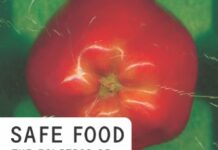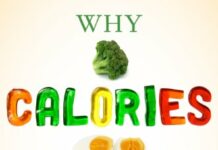
Ebook Info
- Published: 2007
- Number of pages: 510 pages
- Format: PDF
- File Size: 6.40 MB
- Authors: Marion Nestle
Description
An accessible and balanced account, Food Politics laid the groundwork for today’s food revolution and changed the way we respond to food industry marketing practices. Now, a new introduction and concluding chapter bring us up to date on the key events in that movement. This pathbreaking, prize-winning book helps us understand more clearly than ever before what we eat and why.
User’s Reviews
Editorial Reviews: From the Inside Flap “A courageous and masterful exposé.”—Julia Child”If you eat, you should read this book.”—Eric Schlosser, author of Fast Food Nation About the Author Marion Nestle is Paulette Goddard Professor of Nutrition, Food Studies, and Public Health and Professor of Sociology at New York University. Author of Nutrition in Clinical Practice, she has served as a nutrition policy advisor to the Department of Health and Human Services and as a member of nutrition and science advisory committees to the U.S. Department of Agriculture and the Food and Drug Administration. She is the author of Safe Food: Bacteria, Biotechnology, and Bioterrorism (UC Press) and What to Eat .
Reviews from Amazon users which were colected at the time this book was published on the website:
⭐Food Politics is direct, clear, and well-supported. It is a historical account of Corporate America’s shameless political gamesmanship.It outlines the ongoing tussle between the food industry, government, political parties, regulators, investigative reporters, and the consuming public. The book’s format resembles more of a textbook. But Nestle is a Professor of Nutrition so let’s let her do her thing. I’m glad she did. I received a lot of great value in terms of perspective, nuances (especially in FDA regulation), and history.Nestle’s tone is unabashedly critical of the “cozy” relationship between big food and government. Over matters of dietary guidance (i.e. pyramid and guidelines), interested parties battle over semantics such as “choose,” “limit,” and “eat less.”In this book, you’ll get an infusion of “inside” perspective about the process of dietary advice roll-outs. The process of giving dietary advice to influence consumer behavior is knotty and fraught with conflicts of interests.Nestle dives into paid sponsorships, and the disheartening relationships between non-profits (i.e. American Heart Association, American Dietetic Association) and big business. The book is an indictment of the “smug relationships” between agribusiness and government regulators.Upon learning of all the conflicts of interests, which includes “revolving doors” (executive leaders from business and government swapping career positions) and relentless lobbying, you will be left with an icky, trust-no-one feeling. It could help stir anger for social-justice advocates.If you’re into food policy and practice (especially relevant to the ’80’s and 90’s where tons of activity took place), add this to your repertoire.
⭐First, I have to commend Nestle, the author, for doing the near-impossible feat of providing highly controversial facts and information in a clear manner, which is so damning that you cannot help but feel yourself transform your thoughts about food – and she does it without lecturing the reader. Bravo!Some passages that particularly sat with me included, “Surveys indicate that people are interested in nutritional and health but are confused by conflicting information, suffer from “nutritional schizophrenia,” and cannot figure out how to achieve “nutritional utopia.” (p.91) [Indeed… and there’s a billion-dollar industry counting on that!] “The hundreds of millions of dollars available to the meat and dairy lobbies through check-off programs, and the billions of dollars that food companies spend on advertising and lawsuits, so far exceed both the amounts spent by the federal government on nutrition advice for the public and the annual budget of any consumer advocacy group that they cannot be considered in the same stratosphere.” (p.171) “Researches counted not a single commercial for fruits, vegetables, bread, or fish.” (p.182) “It seems reasonable to expect that everyone would be concerned about whether supplements are safe, whether they do what they claim to do, and whether the benefit of taking them outweighs any financial or health risks they might induce.” (p.220) “Because all foods and drinks include ingredients (calories, nutrients, or water) that are essential for life, any one of them has the potential to be marketed for its health benefits.” (p.315) “Food package labels are the result of politics, not science, and [have] become so opaque or confusing that only consumers with the hermeneutic abilities of a Talmudic scholar can peel back the encoded layers of meaning. That is because labels spring not from disinterested scientific reasoning but from lobbying, negotiation, and compromise.” (p.249)This is a GREAT book, though towards the end my brain lost the ability to analyze the information (fact overload), but overall it was an important read and I’m glad I made my way through it. I wish there was a Reader’s Digest condensed version. This is not for everyone, and definitely not a “light” read. But if you commit to reading it, digesting it, really thinking about it… your life will benefit from doing so. In the end, Nestle has left me frustrated and angry and sad and, in general, just simply emotional. Through her matter-of-fact writing tone and reserved bias throughout the book, I am left to think whatever I want of the information she has spread before me. And it pisses me off.
⭐It took me 9 months to make it through Food Politics. The topic is relevant and it’s interesting to compare the food industry political landscape at the time most of the book was written to where we are now. However, despite my intense interest in nutrition and health, I found it very dry at times–hence the long timeline from start to finish. The drier portions consist of detailed timelines of the history of, say, supplement labeling regulation over a period of 20 (or more) years, followed by Nestle’s much shorter analysis. When I purchased the book, I hoped for more of the latter. Some of the more interesting sections included the chapters on marketing to kids and Olestra. I’m in my late 20’s, so I distinctly remember a lot of the products that the book talks about that are no longer in existence, and it’s thought-provoking to see that we were essentially brainwashed as kids. These days, I maybe consume a gallon of milk every six months, but I never once questioned the food pyramid as the ultimate guide to my diet up until early in high school, and it turns out that was probably the exact intent of the meat, dairy, and farming industries. I think that most people reading this book now were turned onto it by learning about the industry politics (and lies) elsewhere and are just seeking more details about the extent of it, but it would be helpful if the book was written (or revised) more in a way to actually introduce less-exposed/educated readers to that concept as a new idea. Although it’s 2014 and so many more people are conscious of where their food is coming from than 10 or 20 years ago, many still are not. Nonetheless, the topic and takeaways are important, so if you have the stamina for the factual writing style, I would recommend it.
⭐This is a very well researched book on the pervasive influence of Politics and Industry on the priduction, marketing and advice on food. I was particularly interested in the latter, where the US FDA Food Pyramid is a key feature of the book. The industry reactions to even the slightest changes to this meant that it became a politicised, and thereby meaningless guide to the public. But the flaw I refer to is that the author herself based her role in these matters on a false premise – that fat is bad, that saturated fat is bad and that carbs should be a large part of everyone’s diet. So the book lost credibility in my eyes. Aside from this, it is very thorough and highly (but appropriately) damning of industry, driven, in essence, by greed.
Keywords
Free Download Food Politics: How the Food Industry Influences Nutrition, and Health, Revised and Expanded Edition (California Studies in Food and Culture) in PDF format
Food Politics: How the Food Industry Influences Nutrition, and Health, Revised and Expanded Edition (California Studies in Food and Culture) PDF Free Download
Download Food Politics: How the Food Industry Influences Nutrition, and Health, Revised and Expanded Edition (California Studies in Food and Culture) 2007 PDF Free
Food Politics: How the Food Industry Influences Nutrition, and Health, Revised and Expanded Edition (California Studies in Food and Culture) 2007 PDF Free Download
Download Food Politics: How the Food Industry Influences Nutrition, and Health, Revised and Expanded Edition (California Studies in Food and Culture) PDF
Free Download Ebook Food Politics: How the Food Industry Influences Nutrition, and Health, Revised and Expanded Edition (California Studies in Food and Culture)

